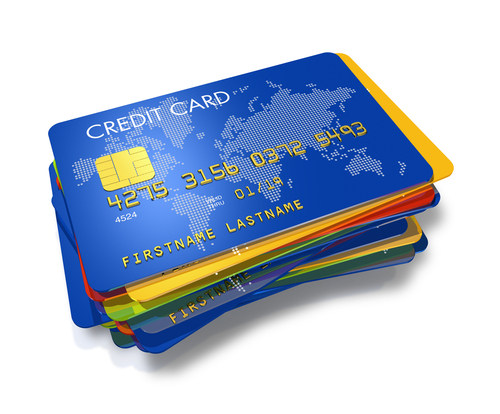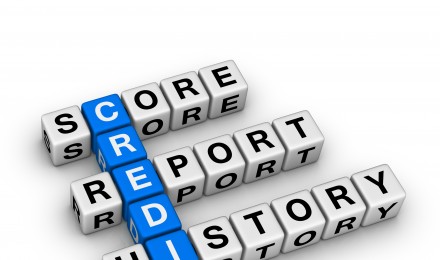Even if you don’t like credit cards and prefer to pay for items with cash, keeping at least one bank credit card in your wallet can provide financial support during an emergency.
These types of credit cards are issued by banks — such as Chase, Bank of America and Citigroup — and typically feature a Visa or MasterCard logo. Practically every bank offers a credit card and applying with your personal bank might increase your chances of an approval. There is an existing relationship and the bank no doubt wants to retain your business. But at the same time, you shouldn’t limit yourself. Your bank may offer an amazing card deal, then again, another bank might offer more favorable terms.
If you’re looking to establish credit, rebuild credit or simply add another line of credit, here are a few tips to help you find a bank credit card.
Understand your credit. There are bank credit cards for good credit and bad credit. Before applying for any type of bank credit card, you need a clear understanding of your credit rating. This is how you determine the right type of card. For example, someone with a high credit score and no derogatory items of their credit report might easily qualify for an unsecured bank credit card, whereas someone with a low credit score might be limited to a secured credit card.
Order your personal FICO score from MyFico.com to assess your rating. If you have bad credit, you need a bank that extends lines of credit to people with not-so-perfect credit. Knowing your credit score and applying for the right type of card saves time and alleviates a rejection.
Consider the features. Bank credit cards differ. There are “plain vanilla” credit cards which are essentially basic cards with no reward programs or features. The best type of bank credit card depends largely on your spending habits and needs. Maybe you never use credit, but want a card for emergencies. In this case, a plain vanilla credit card is the better option because you don’t need reward points or miles. Then again, if you want to score free airline tickets, gift cards and cash, you need a rewards credit card that lets you earn points or miles per every $1 spent.
Read the fine print. Applying for a bank credit card and ignoring the fine print is a big mistake. The fine print explains the terms of the credit card, such as the interest rate, annual fees, cash advance fees, balance transfer fees and much more. Interest rates and fees vary from bank-to-bank. One bank might charge 21% interest, whereas another bank charges 12% interest. Plus, some banks offer incentives and perks, such as no annual fee and 0% interest for a certain number of months. The deals are plentiful if you have good credit, but if you don’t compare different bank credit cards, you can end up paying more in interest and fees.
Even if you don’t like credit cards and prefer to pay for items with cash, keeping at least one bank credit card in your wallet can provide financial support during an emergency.
These types of credit cards are issued by banks — such as Chase, Bank of America and Citigroup — and typically feature a Visa or MasterCard logo. Practically every bank offers a credit card and applying with your personal bank might increase your chances of an approval. There is an existing relationship and the bank no doubt wants to retain your business. But at the same time, you shouldn’t limit yourself. Your bank may offer an amazing card deal, then again, another bank might offer more favorable terms.
If you’re looking to establish credit, rebuild credit or simply add another line of credit, here are a few tips to help you find a bank credit card.
Understand your credit. There are bank credit cards for good credit and bad credit. Before applying for any type of bank credit card, you need a clear understanding of your credit rating. This is how you determine the right type of card. For example, someone with a high credit score and no derogatory items of their credit report might easily qualify for an unsecured bank credit card, whereas someone with a low credit score might be limited to a secured credit card.
Order your personal FICO score from MyFico.com to assess your rating. If you have bad credit, you need a bank that extends lines of credit to people with not-so-perfect credit. Knowing your credit score and applying for the right type of card saves time and alleviates a rejection.
Consider the features. Bank credit cards differ. There are “plain vanilla” credit cards which are essentially basic cards with no reward programs or features. The best type of bank credit card depends largely on your spending habits and needs. Maybe you never use credit, but want a card for emergencies. In this case, a plain vanilla credit card is the better option because you don’t need reward points or miles. Then again, if you want to score free airline tickets, gift cards and cash, you need a rewards credit card that lets you earn points or miles per every $1 spent.
Read the fine print. Applying for a bank credit card and ignoring the fine print is a big mistake. The fine print explains the terms of the credit card, such as the interest rate, annual fees, cash advance fees, balance transfer fees and much more. Interest rates and fees vary from bank-to-bank. One bank might charge 21% interest, whereas another bank charges 12% interest. Plus, some banks offer incentives and perks, such as no annual fee and 0% interest for a certain number of months. The deals are plentiful if you have good credit, but if you don’t compare different bank credit cards, you can end up paying more in interest and fees.







